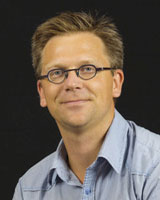Pruyt, Erik

Personalia
Erik Pruyt, born in Gouda, the Netherlands, in 1977. Ph.D. from the Free University of Brussels. Assistant Professor of System Dynamics at Delft University of Technology.
Theme Group Fellow (1 September 2014 – 31 January 2015)
Exploring and Explaining Dynamics of Political Decision‐Making under Deep Uncertainty: Application of New Computational Approaches
Research Question
How to model, simulate and analyze complex uncertain political decision‐making processes?
Project Description
Political institutions and related systems of decision‐making can be seen as multi‐dimensional and complex‐dynamic processes. Computational models can be used to explore their dynamics, multiple dimensions, and take account of deep uncertainty in these processes. This EUDINS project aims at developing simulation models that help understand and replicate (EU) decision‐making processes and demonstrating valuable synergies between computational approaches and other research methods in the social sciences. It supports the other individual projects by implementing complex models of decision‐making and offering simulations and model-based analyses under deep uncertainty. These simulation models will not only be developed and used for research purposes: They will also be shared as online simulators. This will lead to synergies between approaches and research results developed in the social sciences.
Selected Publications
1) Pruyt, E. and Kwakkel, J. H., 2014. Radicalization under deep uncertainty: a multi-model exploration of activism, extremism, and terrorism. System Dynamics Review: in press. doi: 10.1002/sdr.1510. http://onlinelibrary.wiley.com/doi/10.1002/sdr.1510/abstract
2) Kwakkel, J.H., Pruyt, E., 2013. Exploratory Modeling and Analysis, an approach for model-based foresight under deep uncertainty. Technological Forecasting and Social Change, 80(3): 419-431. http://dx.doi.org/10.1016/j.techfore.2012.10.005
3) Hamarat, C., Kwakkel, J.H. and Pruyt, E., 2013. Adaptive Robust Design under deep uncertainty. Technological Forecasting and Social Change. 80(3): 408-418 http://dx.doi.org/10.1016/j.techfore.2012.10.004